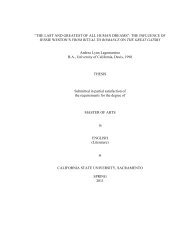Complete Thesis_double spaced abstract.pdf
Complete Thesis_double spaced abstract.pdf
Complete Thesis_double spaced abstract.pdf
You also want an ePaper? Increase the reach of your titles
YUMPU automatically turns print PDFs into web optimized ePapers that Google loves.
corresponding increase in state sanctioned violence used to put down workers uprisings. As the<br />
Conservative and Liberals struggle for power at the local and federal levels, General Jorge Ubico<br />
Castaneda (1931-1944) is elected ruler in Guatemala. General Ubico came to power in<br />
Guatemala in 1930 after the coffee prices collapsed on the world markets. Elites and ladinos<br />
were looking for a ruler that would “prevent restive, unemployed laborers from gaining an upper<br />
hand;” Ubico was just the person (Cullather, 1999, 9). In April of 1932 Ubico, “sympathetic to<br />
landowners’ concerns,” under Decree 1816 sanctioned the murder of any persons that were<br />
deemed a threat to landowner’s goods or land (Gleijeses, 1991, 13). General Ubico rules<br />
Guatemala with the explicit support of the United States, including the support of United States’<br />
Congressmen, Ambassadors, and Presidents.<br />
The worldwide economic depression of the late 1920s and the 1930s had several effects<br />
in Guatemala, the quetzal continued to depreciate, there was rampant unemployment in the<br />
Mayan populations, and a significant decrease in available credit to the middle classes. The<br />
Ubico regime responded to the crisis by strengthening the existing repressive social, economic<br />
and political frameworks. General Ubico continued to encourage economic development by<br />
furthering the practice of (1) appropriating and leasing land to foreign companies, (2) cutting the<br />
wages of the workers in order to keep expenses low for exporters, (3) forcing the Indian<br />
population to labor on federal projects (roads, telegraphs) and large coffee and banana plantations<br />
for little or no pay, (5) relying on militias in rural areas to repress labor and solidarity movements,<br />
(5) increasing the size and scope of the military and using it to reduce social unrest. General<br />
Ubico continued to oppress and terrorize lowest classes, rural populations, and groups without<br />
access to political power. He replaced local political leaders with military generals, he enforced<br />
and encouraged racial stratification, and he used brutal tactics against political adversaries,<br />
including extensive use of the so called “flight law” where detainees were routinely executed<br />
69



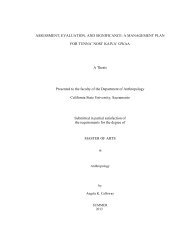
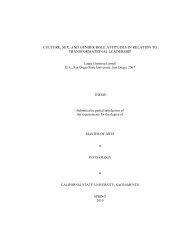
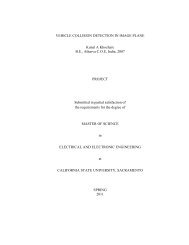
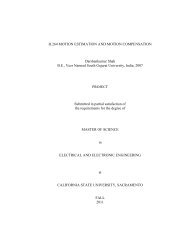
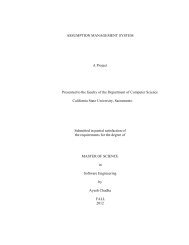
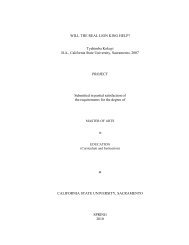
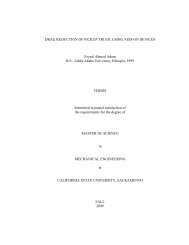
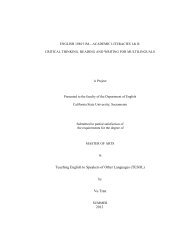
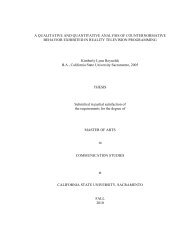
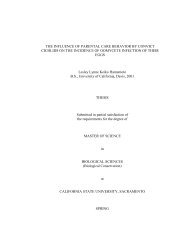
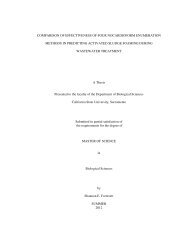
![Completed Thesis to Grad Studies[Final3].pdf](https://img.yumpu.com/17538645/1/190x245/completed-thesis-to-grad-studiesfinal3pdf.jpg?quality=85)
